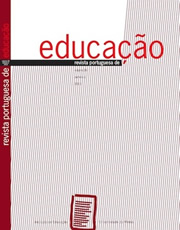Curriculum and pedagogic practices - a sociological analysis of science education texts and contexts
DOI:
https://doi.org/10.21814/rpe.3256Abstract
The study analyses the extent to which the sociological message transmitted by the teachers’ pedagogic practice recontextualizes the Official Pedagogic Discourse of the Natural Sciences curriculum for Portuguese middle school. Theoretically, the study is based on theories of psychology, epistemology and sociology, with a particular emphasis on Bernstein’s theory of pedagogic
discourse. A mixed methodology is used in the study. The results suggest the existence of processes of transformation of the message within the Ministry of Education, when passing from the general principles to the specific principles of the curriculum, in the direction of decreasing the quality of science education. The results of the curriculum analysis are discussed with regard to specific characteristics studied: metascientific knowledge, scientific knowledge and competences, intradisciplinary relations and evaluation criteria. The results also showed a decreasing of the quality of the teaching-learning process when passing from the curriculum to the pedagogic practices, shown by the absence, by teachers, of recognition and passive and active realization
rules in most of the characteristics under study. These processes of transformation of the message are discussed, as well as its consequences in terms of scientific learning.
Keywords
Science education; Curriculum; Teaching practice; Recontextualization
Downloads
Downloads
How to Cite
Issue
Section
License
1. The authors preserve their authorship and grant the Portuguese Journal of Education the right to the first publication. The work is licensed under Creative Commons Attribution License that allows sharing the work with the acknowledgment of initial authorship and publication in this Journal.
2. The authors have the right to take additional contracts separately, for non-exclusive distribution of the published version of their work (e.g. to deposit in an institutional repository or as a book chapter), acknowledging the initial authorship and publication in this Journal.
3. The authors have the permission and are stimulated to post their work online (e.g. in an institutional repository or on their personal website). They can do this at any phase of the editorial process, as it may generate productive changes, as well as increase impact and article citation (see The Open Citation Project).
The work is licensed under Attribution-ShareAlike 4.0 International (CC BY-SA 4.0)




















